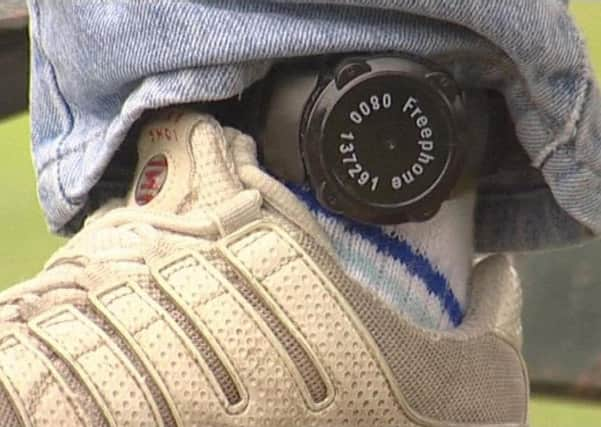Scots inmates could be given sobriety tags and GPS trackers
This article contains affiliate links. We may earn a small commission on items purchased through this article, but that does not affect our editorial judgement.


Tagging as an alternative to remand could also be introduced under a new pilot scheme by the Scottish Government to extend electronic tagging in the country.
Sobriety tags could be used instead of a prison sentence for those who offend when they are under the influence of alcohol.
Advertisement
Hide AdAdvertisement
Hide AdAccording to BBC Scotland, the proposals have been recommended by an expert working group on electronic monitoring, which was created by the Scottish Government two years ago.
There are currently 1,000 people tagged in Scotland.
Under the new proposals tagging could be used as an alternative to remand in prison and as a condition of bail. GPS tracking would also be used for the first time to monitor offenders’ movements.
Ex-offender Robert Johnson, 35, favoured the scheme, he said: “When I was in prison I was ashamed and embarrassed and I didn’t want my children to see me there in a place like that.
“Every dad wants to be superman to their children and I didn’t want them to see me there, to see me exposed.
“Being at home with a tag and being able to spend time with my family and start looking at education and work, and being with my children, money can’t buy something like that.”
He added: “In prison you’re left in your cell for 23 hours a day locked up with not a lot to do and the chances are if you do something it’s not going to be something worthwhile. On Home Detention Curfew you can be home with your family and your children and start rebuilding your life.”
Justice Secretary Michael Matheson said: “Rather than just deciding on what kind of electronic monitoring they’re going to use, they work out what they’re trying to achieve first of all and then look at whether electronic monitoring would help to achieve that aim,” he said.
“And it could be different types. It could be GPS or the radio system which we have at the present time. We want to focus on outcomes.
Advertisement
Hide AdAdvertisement
Hide Ad“The report highlights that we could use electronic monitoring in a much more effective way, for example, for individuals remanded into custody.”
‘Not a soft option’
Angela Smith, service director at G4S Monitoring Technologies & Services in Scotland, added: “This is not a soft option. It is a restriction placed not only on offenders but also on their families,” she said. “But it does allow them to stay with their families and maintain their jobs and keep relationships together.”
DOWNLOAD THE SCOTSMAN APP ON ITUNES OR GOOGLE PLAY
